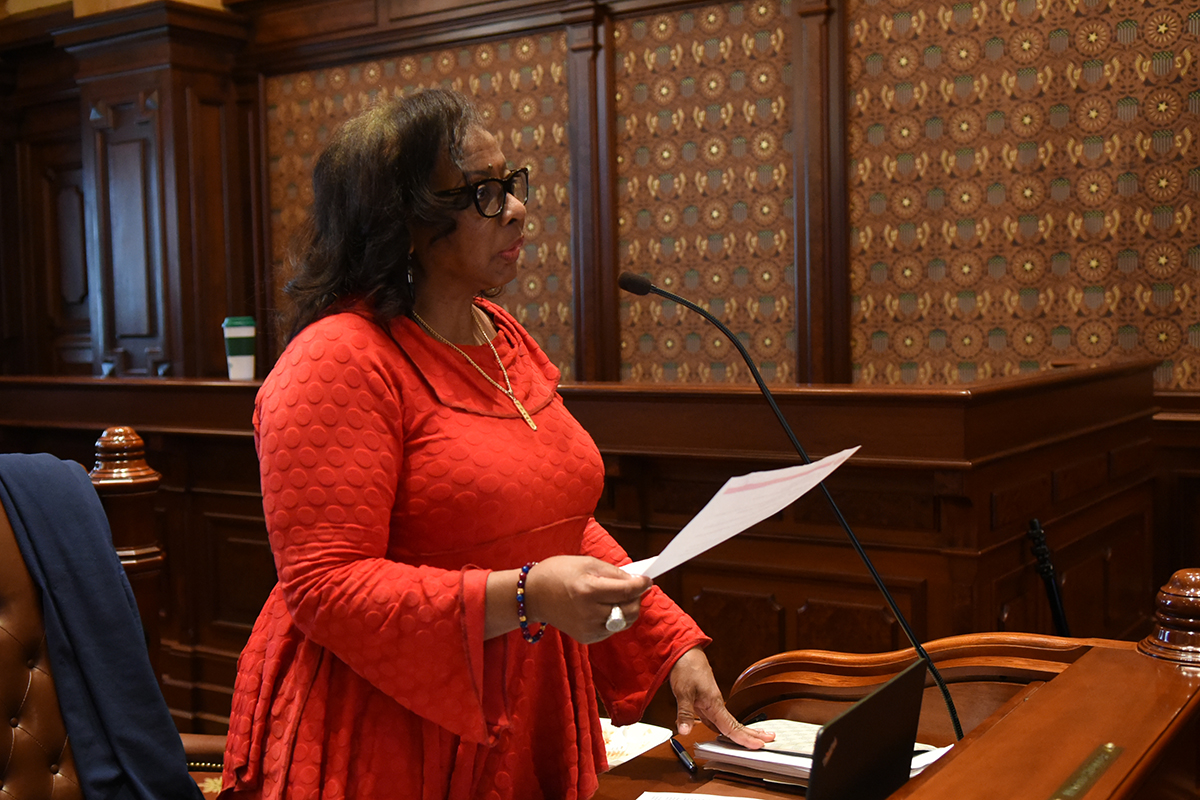Sen. Hunter moves to provide adequate funding for all schools in Illinois
- Details
- Category: News

“Today I moved to override the governor’s amendatory veto. For the first time in decades my colleagues and had a chance to do the right thing for schools and students across the state.
Many children have suffered at the hand of a broken system for far too long. Senate Bill 1 not only provides adequate dollars to the states most vulnerable students, but provides equality and parity for our school districts moving forward.
I came to this chamber in 2003, and since then our state’s school funding system, has maintained the status quo of unfairly pitting school districts against one another.
The override was necessary. This is about providing adequate dollars for all schools and future generations. We need to save our schools and our students.”
Hunter measure guarding against cybersecurity breaches signed into law
- Details
- Category: Frontpage

“Hacking experts are becoming more creative by identifying new ways to obstruct governmental information systems,” said Hunter. “Training our employees in cybersecurity is critical in reducing the risks of such sophisticated attacks.”
The initiative was modeled after a Florida law which was enacted to ensure that the state’s data and staff resources are maintained reliably and safely and are recoverable in the event of a disaster.
“This legislation will not only improve the accessibility of electronic information and information technology but will increase education, employment and access to governmental information and services,” said Hunter.
The security training attached to House Bill 2371 will include:
- Detecting phishing scams
- Preventing spyware infections
- Preventing identity thefts
- Preventing and responding to data breaches
The legislation becomes effective Jan. 1, 2018.
Expanding the Organ Donor Registry becomes law
- Details
- Category: Uncategorised

“Choosing to give life to another is a wonderful gift,” Hunter said. “Opening the donor registry will broaden the number of overall donations and save countless lives. For donors, their decision to register can turn a troubling time into a source of comfort for families and individuals in need. The campaign has not only been designed to increase the donor registry list, but to also celebrate those that have helped save lives through the gift of donation.”
Under current law, an individual must be at least 18 to join the registry. While this legislation leaves the decision up to teenagers, Senator Hunter encourages youth to discuss their decision with their parents.
By joining the First Person Consent Organ/Tissue Donor Registry, 16- and 17-year-olds can give consent to donate their organs and tissue at the time of their death. However, the procurement organizations, Gift of Hope Organ and Tissue Network and Mid-America Transplant, are required to contact a parent or guardian to ensure approval of the donation. Ultimately, the parent or guardian will have the opportunity to overturn the child’s decision.
The legislation becomes effective immediately.
Hunter: This legislation will keep young mothers in school
- Details
- Category: Uncategorised

“Breast milk provides the ideal nutrition for infants, “said Hunter. “It’s important that we provide our youth, especially, with a private, clean and safe place to produce milk for their young. This bill will also keep many of our young mothers in school who often times miss out because of the restrictions of the campus environment.”
House Bill 2369 requires public and charter schools to provide reasonable breastfeeding accommodations to pupils. Furthermore, a school campus shall provide reasonable accommodations for a lactating student to provide breast milk, breastfeed an infant child or address other needs related to breastfeeding.
Reasonable accommodations can be defined as:
• Access to a private and secure room other than a restroom to express breast milk or breastfeed an infant child;
• Access a power source for a breast pump or any other equipment used to express breast milk; and
• Access to a place to store expressed breast milk safely.
The legislation was signed into law and takes effect Jan. 1, 2018.
More Articles …
Page 108 of 143


